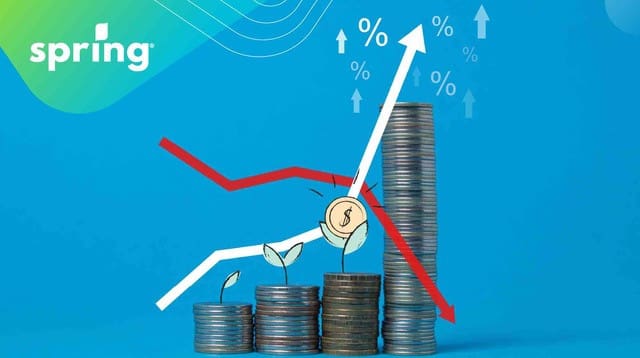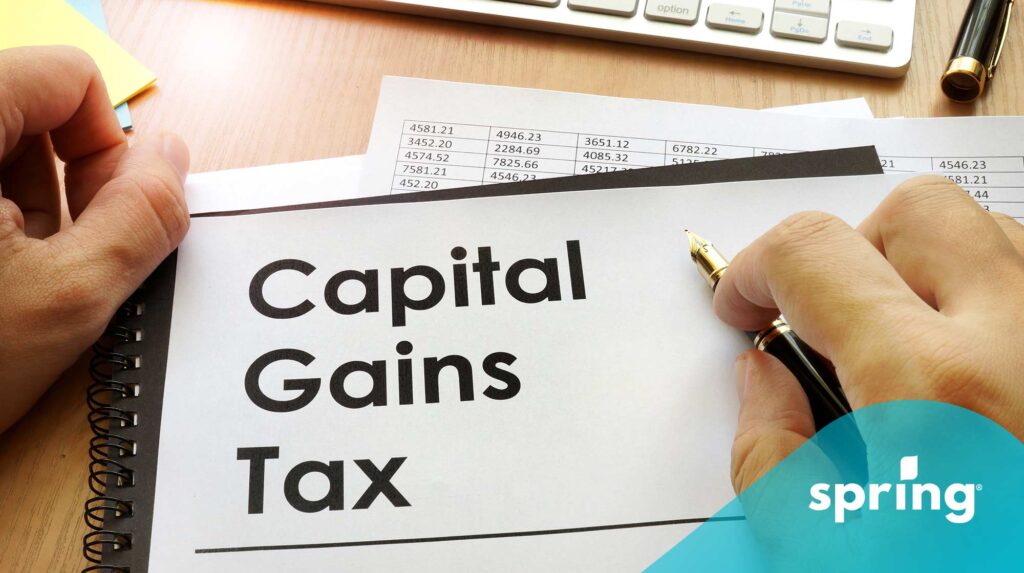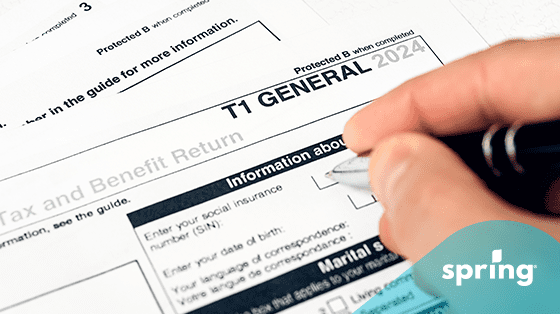It’s a complex topic and before we dive into the details, we need to start from the beginning.
What Are Credit Scores?
Credit scores are calculated by Canada’s major credit bureaus (e.g. Equifax and TransUnion) and show up as a three-digit number in your credit report. Lenders look at your credit score because they want to know how well you manage credit products like car loans, credit cards, and mortgages. Your credit score is basically your reputation for paying your bills on time. You get a high credit score if you use credit wisely and a low credit score if you’re not responsible with it.
Credit scores are important because they impact almost every aspect of your life. Your credit rating gets checked when you apply for a loan and influences whether or not you get approved. Many landlords and employers also run credit checks before offering apartment keys and employment opportunities. With so much on the line, it’s imperative to keep your credit score in good standing.
How Credit Scores Are Calculated
Credit bureaus look at the following factors in order to calculate credit scores:
- Payment history: Your track record when it comes to paying your bills on time. If you have a history of late or missed payments, it will show up here.
- Credit utilization: How much available credit for revolving credit (i.e. credit cards) you’re using. It’s expressed as a percentage and is calculated by dividing the amount you currently owe by your total credit limit.
- Credit history: How old your credit accounts are.
- Credit mix: The types of credit products you have and whether or not it’s a diverse portfolio.
- Inquiries: The number of recent hard inquiries on your credit report.
- Public records: Includes collection issues, consumer proposals, and bankruptcies.
Keep in mind Equifax and TransUnion use different formulas and scoring models, so you will have different credit scores depending on the credit bureau.

Credit Score Range For Transunion
TransUnion credit scores range from 300 to 900. If you’re curious about your TransUnion credit score, you can get a copy of your Consumer Disclosure for free once a month.
Credit Score Range For Equifax
Just like TransUnion, Equifax’s credit scores range from 300 to 900. Wondering what your Equifax credit score is? Check it for free on Borrowell, a Canadian credit education platform that provides complimentary credit report monitoring, financial tips, and personalized loan recommendations.
Equifax also provides free credit reports upon request.
Credit score ranges according to Equifax.
Generally, a credit score of 660 and over is considered good in Canada. Anything in the 300 to 559 range is usually seen as a poor credit score.
Take this with a grain of salt, though. Credit bureaus use different credit scoring models, which means there’s a high chance your Equifax credit score is not the same as your TransUnion one. This can be problematic when applying for a loan. If your TransUnion credit score is 50 points higher than your Equifax one, but the lender pulls your Equifax credit report, this may impact the interest rate you’re offered.
Lenders may also have differing opinions on what constitutes a good credit score and have their own threshold for approval.
Finally, it’s important to remember that your credit score isn’t the only deciding factor when it comes to getting approved. Your income, employment history, collateral value, liquid assets, and loan term play a significant role when financial institutions decide to work with you or not.
Is A 600 Credit Score Good in Canada?
According to the Government of Canada, average credit scores range from 650 to 725. A score of 600 is below average and indicates a higher-risk borrower. If your credit rating sits anywhere between 560 and 659, you’re less likely to access loans from banks and other traditional financial institutions. Even if you get approved with a major bank, you probably won’t qualify for attractive interest rates.
You may be able to get a secured loan or secured credit card, but they may come with a higher interest rate.
Is A 620 Credit Score Good in Canada?
A 620 credit score is fair but still lower than the national average range. Just like a 600 credit score, you may have a harder time getting approved for standard credit products and regular rates.
Is A 750 Credit Score Good in Canada?
A 750 credit score is not just good; it’s very good. If your credit score falls within 725 to 759, it means you have a solid track record of responsible credit use. Lenders see you as a lower-risk borrower and feel more confident about your ability to repay debt. You may also qualify for some of the best interest rates available depending on the financial institution.
Is An 800 Credit Score Good in Canada?
An 800 is an excellent credit score. If you have anything over 759, it shows lenders you know how to manage credit wisely and can be trusted to pay back loans on time. You’ll get to enjoy the best interest rates on the market and will usually always get approved for the loan you want, whether that’s a mortgage for your first home or financing for a new car. When applying for credit cards, you’re also more likely to receive promotional rates, cashback bonuses, and exclusive rewards.
Getting A 900 Credit Score in Canada
It’s extremely rare to get a perfect credit score of 900 since so many formulas and factors go into the credit score calculation. The good news is you don’t need a perfect score of 900 to access credit products at the best terms and lowest interest rates. Anything over 759 will provide you with all the benefits of a perfect credit score.
What is a Good Credit Score in Canada
While a good credit score is relative, ideally, you want to aim to have a score of 700 or higher. A good credit score helps you get higher credit limits and maintain your overall financial health. The best way to get and maintain a good credit score is to make your monthly payments on time, keep your credit card balance low and make consistent payments for any existing debt.
Many people think being debt-free is the best for your credit score, but that isn’t really the case. Having no financial products on your credit file doesn’t show potential lenders your ability to make financial decisions or showcase your financial health. Since your credit score influences potential lenders, average scores will get you higher loan rates
With this in mind, though, a professional advisor can help you build your credit score using key factors that will increase your financial well-being while keeping you out of financial trouble.
Breakdown Of Credit Score Ranges in Canada
While we have gone over how credit scores work and talked about the general ranges within each credit reporting agency, let’s take a look at a clear breakdown of where credit ranges sit. There are 5 different categories that your credit score can fall into.
- Poor Credit: 300-559
- Fair Credit: 500-659
- Good Credit: 660-724
- Very Good Credit: 725-759
- Excellent Credit: 760-900
Average Credit Scores By Province And City
| Province | Average Credit Score by City |
| British Columbia | Vancouver: 703 Victoria: 691 Burnaby: 697 Surrey: 668 |
| Alberta | Calgary: 665 Edmonton: 645 |
| Saskatchewan | Regina: 654 Saskatoon: 656 |
| Manitoba | Winnipeg: 657 |
| Ontario | Toronto: 694 Mississauga: 690 Markham: 715 Brampton: 667 London: 665 Hamilton: 653 Ottawa: 685 |
| Quebec | Montreal: 690 Quebec City: 668 |
| Nova Scotia | Halifax: 658 |
| New Brunswick | Moncton: 632 |
When you study the table above, you might notice a pattern. Interestingly, it seems that residents in provinces that offer more job prospects and higher salaries (e.g. Ontario) tend to have higher credit scores compared to provinces with fewer economic opportunities.
Average Credit Scores By Age in Canada
The following table highlights the average credit score by age in Canada according to Equifax’s 2018 consumer credit database.
| Age | Average Credit Score |
| 18-25 | 692 |
| 26-35 | 697 |
| 36-45 | 710 |
| 46-55 | 718 |
| 55-65 | 737 |
| 65+ | 750 |
Generally speaking, older adults tend to have higher credit scores compared to younger adults. Time seems to play a crucial role in credit health. Good credit builds over the years as you add different credit products to your portfolio and increase the length of your credit history. Keep in mind this isn’t always the case since age doesn’t automatically predict your credit outcome, and you need a good credit history to build good credit. Young adults under 25 years of age can still achieve excellent credit scores by exercising responsible and consistent credit habits.
Average Canadian Credit Score
With as much as we mention bad credit scores and how important it is to have a good credit score, you might be surprised to learn that the overall Canadian average credit score is actually in the Excellent range at 760. This average has stayed pretty steady over the past few years.
Even if you don’t fall into this average range now, though, that doesn’t mean that you can’t. There are plenty of different ways you can influence your credit score, and improving it actually doesn’t take as long as you think. That said, maintaining good habits and consistent credit mixes for 2 years is the most consistent way to improve and maintain your credit.
Checking Your Credit Score
Keeping tabs on your credit score is always a good idea, and checking it is easier than ever. You can check your credit score for Transunion by signing up for Credit Karma or directly on the Transunion website. If you’re looking for your Equifax score, you can find it on Borrowell or the Equifax website.
The best part of checking your own credit report and credit score this way is that it’s free. You just need to keep in mind that free credit scores are found using a soft credit check, so they may be a few points off your real score. It’s enough to get a good idea of where you’re at, though.
Your goal when improving your credit score should ideally be somewhere in the 700 range. While 660 and up is considered good, 700 and up is where you’re going to see a lot of financial opportunities open up for your financial life.
Improving Your Credit Score
If you notice that your credit score is lower than average, don’t panic. It’s possible to improve your situation with a few small tweaks to your financial behaviour. Here are five things you can start doing now to enhance your creditworthiness.
Make Payments On Time
Payment history accounts for 35% of your credit score, so you need to make sure you pay all your bills by the due date. Paying late or missing payments can severely harm your credit score and are huge red flags for lenders.
Keep Your Credit Utilization Low
The second biggest factor influencing your credit score is credit utilization. Let’s say you have a credit card with a $10,000 limit and spent $5,000. Your current credit utilization would be 50%. TransUnion recommends keeping your credit utilization under 35%, so be mindful of your spending and try not to max out your cards.
Be Selective of the Credit Products You Apply For
Don’t apply for new loans and credit cards unless they will genuinely help your financial situation. Lenders conduct a hard inquiry on your credit report every time you submit an application. Multiple hard inquiries in a short time frame can cause your credit score to drop because the numerous applications can be seen as a sign of financial hardship or that you are taking on more debt than you can handle. But don’t worry if you’re shopping around for car loans or mortgage rates. Most scoring models don’t penalize you for trying to get the best interest rates.
Don’t Close Current Accounts
You may think cancelling some credit cards will make it easier to manage credit utilization, but this is a mistake. The truth i: you need active loan products to build credit. Credit history accounts for about 15% of your credit score because creditors and lenders like to see how you maintain credit over the years. Keeping credit accounts open so that you can focus on building a positive payment history.
Maintain A Healthy Mix Of Credit
Credit mix refers to all the different credit accounts you have, including credit cards, personal loans, and open accounts like monthly mobile phone contracts where you make monthly cell phone payments. A healthy credit mix consists of diverse credit products because it shows you can manage various types of credit, from short-term revolving credit to long-term mortgages.
If you only have an instalment loan on your credit file with the credit bureaus, look into diversifying your credit mix with a secured or unsecured credit card. On the flip side, if you only have credit cards, you could add a car loan or personal loan to your portfolio to improve your credit mix, but only if it makes financial sense. Don’t overextend yourself just to improve your credit mix.
Types of Credit Products And How They Affect Your Credit
When we discuss credit mixes and how it’s important to have different types of credit, we’re referring to the three different types of credit: open, revolving and installment. Every credit product where you borrow money falls into one of these three categories, and each of these categories has a different effect on your credit score. That said, it’s important to not that credit inquiries can also affect your credit score and reduce it 5 to 15 points.
Open Credit
Open refers to different types of credit accounts like cell phone bills and utility bills. With these types of credit, you use a service and pay for what you use at the end of the month. With open credit, paying your monthly bill doesn’t improve your credit at all, but missing payments and defaults on these payments can have a negative impact on your credit score.
Revolving Credit
Revolving credit involves credit with a limit that you can keep using after you pay it off. Some examples of this type of credit are credit cards, secured credit cards, lines of credit, and secured lines of credit like home equity lines of credit.
While you have a maximum credit limit with these types of credit, using that maximum limit consistently can impact your credit score negatively. Keep in mind that these amounts are reported to the credit reporting agencies monthly, so revolving credit will constantly change your credit score. That doesn’t mean your minimum payment doesn’t make a difference, though. You should still make those on time every month, no matter what your balance is.
As a general rule, using 30% of your credit card limit or less can have the most positive impact on your credit score. This is known as your debt-to-credit ratio or your credit utilization ratio. As you use more than this, you’ll notice your credit score start to go down. You may notice when you pay down revolving credit that, your credit score will also increase a lot. Too many credit cards can also affect your credit score.
Installment Credit
Installment credit refers to loans that have fixed payments and are set to be paid on a fixed schedule. The most common types of installment loans include auto loans, personal loans, mortgages, and student loans. There are other unsecured loans that fit in this category, too.
With installment credit, your monthly timely payments are reported to the credit bureaus and your credit limits are fixed. The longer you have these types of loans, the more positive of an impact you’ll see on your credit score. That said, you’ll also notice that any missed payments are also reported to the credit bureaus.
Final Thoughts
In Canada, whether you have a good credit score or bad credit is important because it can impact your life greatly. Not only can it influence you to borrow money since a strong credit score reflects healthy financial habits, but it can also affect your eligibility for utilities, getting a job, opening a bank account or renting a place to live. For these reasons, it’s important to know your credit score and what affects them. This way, you can improve your credit score when needed or maintain a good credit score.
While having bad credit doesn’t mean you can’t qualify for things, it can make things more difficult and cause lenders to charge higher interest rates. This can end up costing you a lot more money in the long run. The simplest way to maintain your credit score, though, is to make all of your payments on time. If you can’t, though, it’s best to speak with the lender directly to see if arrangements can be made.








